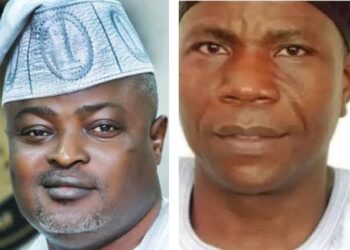The EU is exploring a 2MW hydropower project at Asso Falls, Plateau State, to boost agriculture, industry, and tourism with clean energy
The European Union (EU) has announced plans to explore the potential for a hydropower generation site at Asso Falls in Plateau State, Nigeria.
The project, expected to generate 2MW of electricity, aligns with the EU’s commitment to providing clean, safe, and renewable energy sources to support agriculture, industry, and tourism in the region.

According to Inga Stefanowicz, Head of Green and Digital Economy at the EU Delegation in Nigeria and ECOWAS, the EU is working closely with the Plateau State government and other stakeholders to assess the technical, financial, and environmental feasibility of the project.
Stefanowicz emphasised the significance of integrating the hydropower initiative into Nigeria’s broader electricity market, stating, “With electricity generation, we will have agriculture, industry, and tourism. That’s a very good combination.”
The project is also being evaluated by the United Nations Industrial Development Organization (UNIDO), which is conducting a feasibility study to determine its capacity.
Ponzing Gamde, Managing Director of the Plateau State Energy Corporation, confirmed that preliminary data collection has been completed, and design plans are underway.
The initiative has received strong backing from local authorities. Owen Karyit Dagogot, a member of the Plateau State House of Assembly, expressed optimism, saying, “This place is going to be utilised to its full potential. It is an advantage because you already have solid ground.”
Sam Gyang Yakubu, Director of Technical Services at the Plateau State Energy Corporation, noted that the construction timeline could be as short as two to three years. He assured that power evacuation would not be a challenge due to the project’s layout.
At the federal level, Dina Temitope from the Federal Ministry of Power highlighted how the project aligns with Nigeria’s Vision 30:30, which aims to generate 30 gigawatts of electricity by 2030, with 30% sourced from renewables.
The EU Delegation’s Programme Manager for Energy and Circular Economy, Godfrey Ogbemudia, reaffirmed the EU’s commitment to ensuring the project delivers sustainable energy for economic growth.
“We want to be sure that EU taxpayers’ money is fully utilised. It’s not a donation. You could transport all the power from here to any other agricultural hub where pre-processing is happening,” he explained.
GIZ, a German development agency, is also supporting the project through collaboration with the National Electricity Regulatory Commission (NERC).
According to Eckhard Heine, Head of GIZ’s Sustainable Energy Access component, the organisation is working to effectively engage state-level stakeholders.
Additionally, GIZ Technical Adviser Alexander Akolo mentioned that Plateau State Governor Caleb Manasseh Mutfwang recently passed the State Electricity Law, which could be refined to support mini-grid policies and other energy developments.









